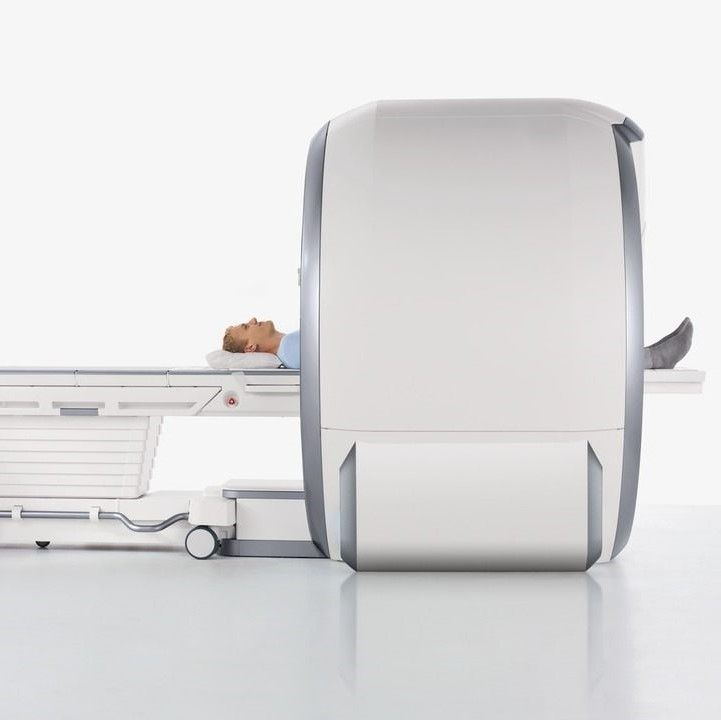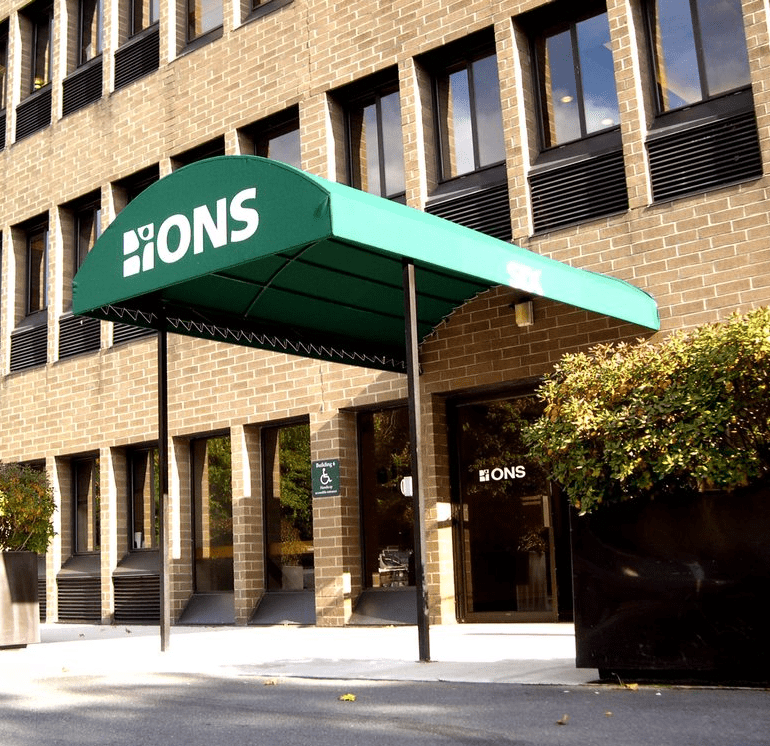Orthopaedic & Neurosurgery Specialists (ONS) is pleased to provide MRI (Magnetic Resonance Imaging) at our Greenwich and Stamford locations to identify orthopedic injuries and conditions. An MRI captures images of various parts of your body without the use of X-rays, meaning no radiation is required. All ONS MRI scans are evaluated by a board-certified radiologist. Your doctor will review the results with you during your office visit.
What is the Purpose of an MRI?
Our practice uses the most advanced MRI technology and equipment to diagnose and treat a range of orthopedic injuries and conditions. MRI can help provide information for a fast and accurate diagnosis and possibly reduce the need for exploratory surgery or other diagnostic procedures.
MRI is commonly used to:
- Examine soft tissues like muscles, organs, and nerves.
- Detect and diagnose a variety of conditions, including injuries, tumors, infections, and abnormalities.
- Provide valuable information for doctors to plan treatments and surgeries.
Prepare for your MRI
MRI is quite safe for the majority of patients, but there are certain conditions or medical devices that make certain patients ineligible, such as those with pacemakers. Please see the list of conditions below that may prevent you from having an MRI.
Once you have scheduled your appointment, please do the following in preparation for your appointment:
- Prior to your appointment, please complete the electronic MRI Safety Screening Form that was sent to you with your appointment reminder.
- Please plan to arrive at the ONS MRI Center 30 minutes before your appointment.
- If you have an implanted device, please bring documentation with name, manufacturer and model number.
- Please bring a list of your current medications.
What Should I Know About Getting an MRI?
Before your MRI test, tell your health professional and the MRI technologist if you:
- If you have an implanted device, please provide documentation with name, manufacturer and model number.
- Are allergic to any medicines
- If you are or might be pregnant
- Please provide a list of your current medications.
- If you wear any jewelry, eyeglasses, hearing aids, hairpins, removable dental work or other objects that may interfere with the procedure
- Had recent surgery on a blood vessel. In some cases, you may not be able to have the MRI test.
- Have any other health conditions, such as kidney problems that may prevent you from having an MRI using contrast material.
- Wear any medication patches. The MRI may cause a burn at the patch site.
- If you are having a scan in the head or neck area, remove all makeup (some makeup has metallic particles in it). Notify the technologist if you have any facial tattoos, such as eyeliner or eyebrow tattoos.
- If you experience anxiety related to claustrophobia or fear of tight places, your doctor may prescribe a short term medication to take for your MRI appointment.
Wearing clothing or jewelry that contains metal during your exam can degrade or ruin MRI pictures. Metals can also pose serious risk of bodily injury. Therefore, patients will be required to change into a gown to have their MRI.
Conditions That May Prevent you From Having an MRI
The strong magnetic field used during the MRI exam may interfere with your ability to have this diagnostic test.
Please alert the staff prior to your appointment if any of the conditions below apply to you. The radiology staff will let you know whether you can have the MRI exam and whether the test needs to be modified for your individual condition.
- Pacemaker
- Pregnancy
- Claustrophobia
- History of kidney problems
- Skin tattoos
- Neurostimulators (TENS-unit)
- Implanted drug infusion device (i.e., insulin pump)
- Exposure of metal fragments to your eye
- Artificial heart valves
- Aneurysm clips
- Cochlear implants
- Metallic implants and prosthesis
- Vascular stent or stent graft
- History as a metal worker
- Shrapnel or bullet wounds
- Dorsal column stimulators
- Allergy to iodine, or gadolinium
- History of diabetes
- Other conditions you believe to be relevant
Items Prohibited in the MRI Scanning Room
These items are not permitted in the MRI Scanning room.
- Hearing Aids
- Wallets
- Jewelry, including body piercing
- Keys
- Watches
- Loose Change
- Eyeglasses
- Cell Phones
- Pagers
- PDA’s
- Storage Media
- Tablets/Laptops/Computers
- Dentures
- Prosthetic Devices
- Insulin Pumps
- Hair Pins/Bobby Pins
Our practice uses the most advanced MRI technology and equipment to diagnose and treat a range of orthopedic injuries and conditions. MRI can help provide information for a fast and accurate diagnosis and possibly reduce the need for exploratory surgery or other diagnostic procedures.
MRI is commonly used to:
- Examine soft tissues like muscles, organs, and nerves.
- Detect and diagnose a variety of conditions, including injuries, tumors, infections, and abnormalities.
- Provide valuable information for doctors to plan treatments and surgeries.
MRI is quite safe for the majority of patients, but there are certain conditions or medical devices that make certain patients ineligible, such as those with pacemakers. Please see the list of conditions below that may prevent you from having an MRI.
Once you have scheduled your appointment, please do the following in preparation for your appointment:
- Prior to your appointment, please complete the electronic MRI Safety Screening Form that was sent to you with your appointment reminder.
- Please plan to arrive at the ONS MRI Center 30 minutes before your appointment.
- If you have an implanted device, please bring documentation with name, manufacturer and model number.
- Please bring a list of your current medications.
Before your MRI test, tell your health professional and the MRI technologist if you:
- If you have an implanted device, please provide documentation with name, manufacturer and model number.
- Are allergic to any medicines
- If you are or might be pregnant
- Please provide a list of your current medications.
- If you wear any jewelry, eyeglasses, hearing aids, hairpins, removable dental work or other objects that may interfere with the procedure
- Had recent surgery on a blood vessel. In some cases, you may not be able to have the MRI test.
- Have any other health conditions, such as kidney problems that may prevent you from having an MRI using contrast material.
- Wear any medication patches. The MRI may cause a burn at the patch site.
- If you are having a scan in the head or neck area, remove all makeup (some makeup has metallic particles in it). Notify the technologist if you have any facial tattoos, such as eyeliner or eyebrow tattoos.
- If you experience anxiety related to claustrophobia or fear of tight places, your doctor may prescribe a short term medication to take for your MRI appointment.
Wearing clothing or jewelry that contains metal during your exam can degrade or ruin MRI pictures. Metals can also pose serious risk of bodily injury. Therefore, patients will be required to change into a gown to have their MRI.
The strong magnetic field used during the MRI exam may interfere with your ability to have this diagnostic test.
Please alert the staff prior to your appointment if any of the conditions below apply to you. The radiology staff will let you know whether you can have the MRI exam and whether the test needs to be modified for your individual condition.
- Pacemaker
- Pregnancy
- Claustrophobia
- History of kidney problems
- Skin tattoos
- Neurostimulators (TENS-unit)
- Implanted drug infusion device (i.e., insulin pump)
- Exposure of metal fragments to your eye
- Artificial heart valves
- Aneurysm clips
- Cochlear implants
- Metallic implants and prosthesis
- Vascular stent or stent graft
- History as a metal worker
- Shrapnel or bullet wounds
- Dorsal column stimulators
- Allergy to iodine, or gadolinium
- History of diabetes
- Other conditions you believe to be relevant
These items are not permitted in the MRI Scanning room.
- Hearing Aids
- Wallets
- Jewelry, including body piercing
- Keys
- Watches
- Loose Change
- Eyeglasses
- Cell Phones
- Pagers
- PDA’s
- Storage Media
- Tablets/Laptops/Computers
- Dentures
- Prosthetic Devices
- Insulin Pumps
- Hair Pins/Bobby Pins
Please note: ONS MRI patients must provide a minimum of 24 hours’ notice to change or cancel an appointment. Patients who do not arrive for a scheduled appointment or provide adequate notice will be charged a $100 cancellation fee. Learn more here.





